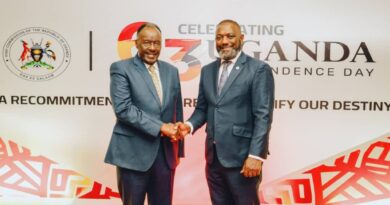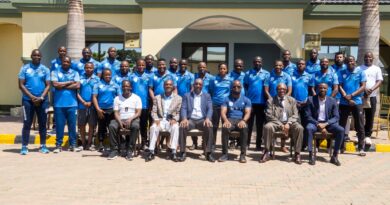Zambia Pledges to Double Rice Production by 2030
The Ministry of Agriculture has reaffirmed Government’s commitment to transforming Zambia’s rice sector into a competitive and sustainable industry that drives food security, economic growth, and farmer empowerment.
Speaking during the Knowledge Sharing Workshop for the Market-Oriented Rice Development Project (MoReDeP) in Lusaka, Acting Permanent Secretary for Administration, Mr Lemmy Kamfwamfwa, who delivered the statement on behalf of Agriculture Minister Mr Reuben Mtolo, said Zambia remains dedicated to the Coalition for African Rice Development (CARD) Phase II target of doubling rice production by 2030.
Mr Kamfwamfwa observed that demand for rice continues to grow across Sub-Saharan Africa, particularly in urban areas, with Zambia no exception. He stressed that this rising demand presents rice not only as an alternative staple but also as a profitable cash crop for smallholder farmers.
“Through MoReDeP, farmers have adopted improved cultivation techniques, formed sustainable farming clusters, and built stronger market linkages. This has resulted in increased yields, reduced reliance on public extension services, and the emergence of viable local rice markets,” he said.
He expressed gratitude to the Government of Japan and the Japan International Cooperation Agency (JICA) for their long-standing partnership in supporting Zambia’s rice development, citing earlier projects such as FODIS-R, RESCAP, and the Rice Development Project, which laid the foundation for MoReDeP.
Reflecting on Zambia’s broader agricultural performance, Mr Kamfwamfwa recalled that the country recently endured one of the most devastating droughts in its history. Despite this challenge, resilience and effective planning enabled Zambia to record a bumper maize harvest of 3.7 million metric tonnes in 2025, surpassing national consumption needs.
He added that Government is implementing key initiatives to sustain agricultural growth, including:
- Full rollout of the Farmer Input Support Programme (FISP) through the e-voucher system in 2025/2026 to improve efficiency and targeting.
- The Sustainable Agriculture Finance Facility (SAFF) to provide affordable financing to farmers and agribusinesses.
- The Presidential Irrigation Programme, expected to deliver 340,000 metric tonnes of maize in 2025 and over 1.6 million metric tonnes by 2026.
“These initiatives are aligned with the Presidential targets of producing 10 million metric tonnes of maize, 1 million metric tonnes of wheat, 1 million metric tonnes of soybeans, and doubling rice production by 2030,” he said.
Mr Kamfwamfwa emphasised that achieving these ambitious agricultural targets would require robust collaboration between Government, the private sector, farmers, academia, civil society, and cooperating partners.



